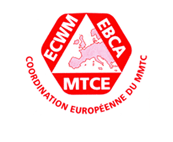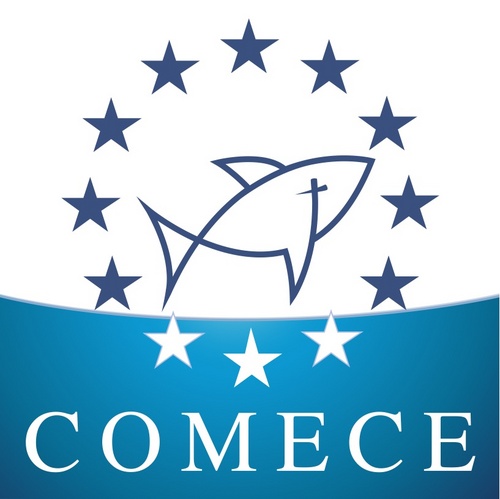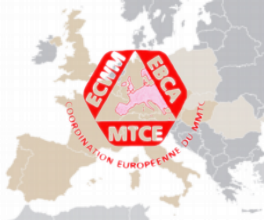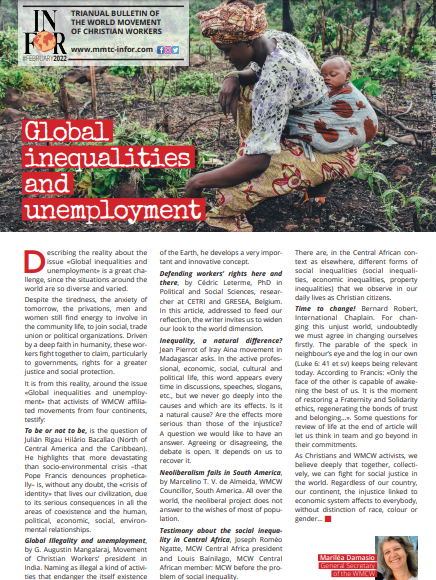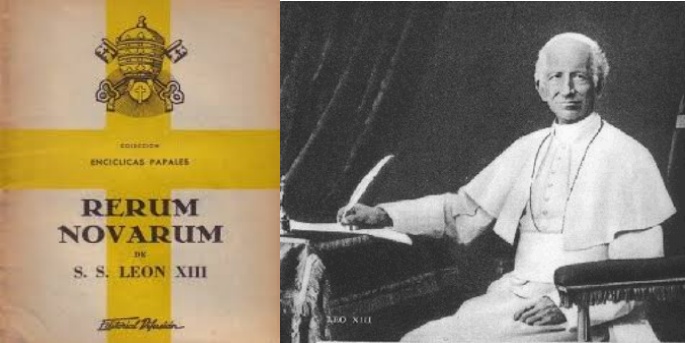
RERUM NOVARUM (15th May, 1891) and the birth of Catholic Social Doctrine
On 15th May, 1891, Pope Leo XIII published encyclical RERUM NOVARUM. This was the birth of Catholic Social Doctrine. As Church, it was the will of looking at a new future where strong economic, social, political, spiritual and cultural changes were been forecasting. In this 2021 Jubilee Year, we take a look at these 130 years of history.
The publication of Pope Leo XIII’s Encyclical Rerum Novarum is considered the birth of Catholic Social Doctrine. But as is usual with births, it had a long “gestation”.
XIX century was full of shocks: up until then, most of population lived from agriculture and, a smaller part, from the trade. The invention of machine does not only lead to the separation of work and capital, but also to the concentration of workers. This meant a great economic upheaval, following of a social one.
On the one hand, it was possible a great freedom, but at the same time, for many, it meant to surrender to “capital”. Politically, 1848 revolution had an effect, that brought the freedom for citizens, but not in relation to general coexistence. Little has changed to proletariat. Finally, the fourth change affected to spiritual-religious life. For many, Church morals were paternalism. Democratic efforts were opposed to Church.
Ferdinand Lassalle founded the General Association of German Workers in 1863. On the Church side, in Fulda’s Episcopal Conference in1869, Bishop Wilhelm Ketteler demanded clergy’s training in working question. He published an article in 1864: Working question and the Christianity. He acknowledged that “man faces now to the machine which works day and night with many horsepower”. For him, the social question was also a question about what the Church must have an opinion. In 1870, he and other seven bishops submitted a motion in Vatican Council I that said: “…religious-minded workers raise their eyes and hands towards Mother Church with the hope she restores love Christian laws and justice…in society”. The Council was broken up too soon, so any vote was taken.
Leo XIII was very influenced by Ketteler’s works. For him, “without help of religion and Church there could have not any solution to the current confusion”. But “the silence could be an infringement of our duty” (no. 13). Rerum Novarum is an long-expected answer to the era events, a programme for the most affected social group by the Industrial Revolution, that is, workers. The wage question is an imperative of justice. Wages must support families (no. 10). Leo XIII defends the private property, but he also warns against excessive wealth. He sees how “some excessively rich people impose an almost servile yoke to a mass of deprived ones” (no.2). it is a duty “to give charity of our own wealth to the needy brothers” (no.19). Thus, he opposes to socialism, that it wants to put all the production means in State’s hands. But he also talks against liberalism, he opposes to all State’s interference. The State has the task of supporting those whose existence is not secure (no.29). For that reason, he claims a state legislation which protects workers. At the same time, Leo XIII knows that Church power is limited and wants workers to help themselves. Pope Leo recognizes them their right of free association (no. 38).
In 1891, Rerum Novarum became a milestone in the social question discussion.
Karl A. Immervoll, federal chaplain of Austrian Catholic Worker Movement (KABÖ)
